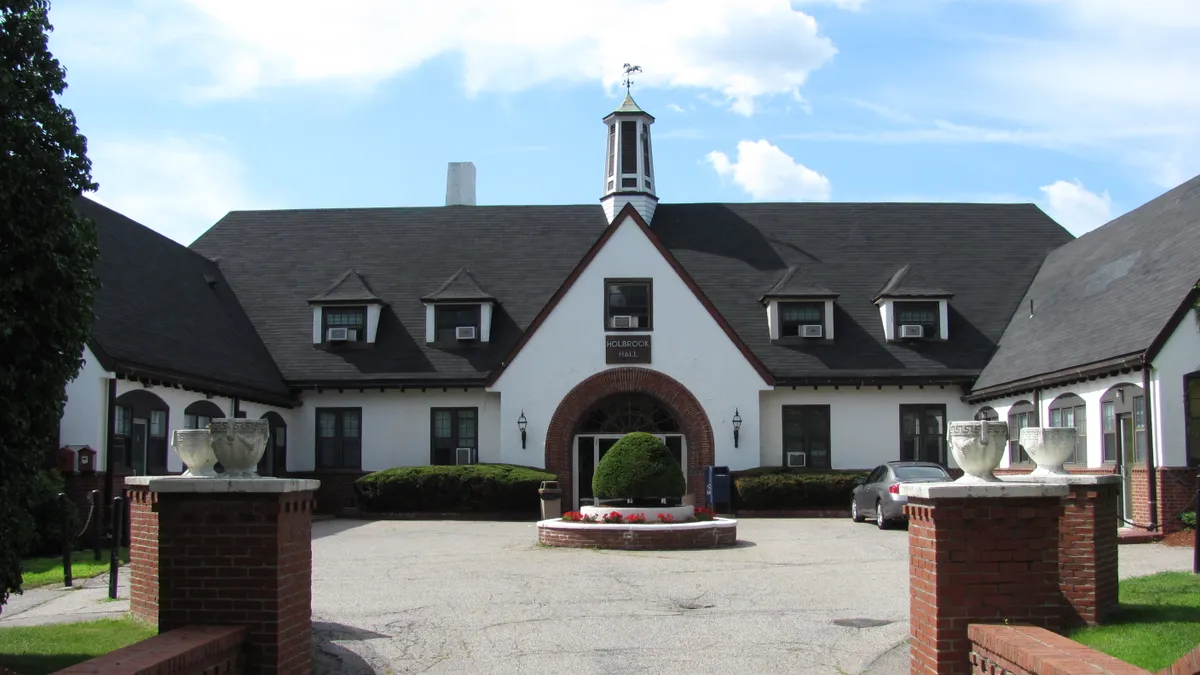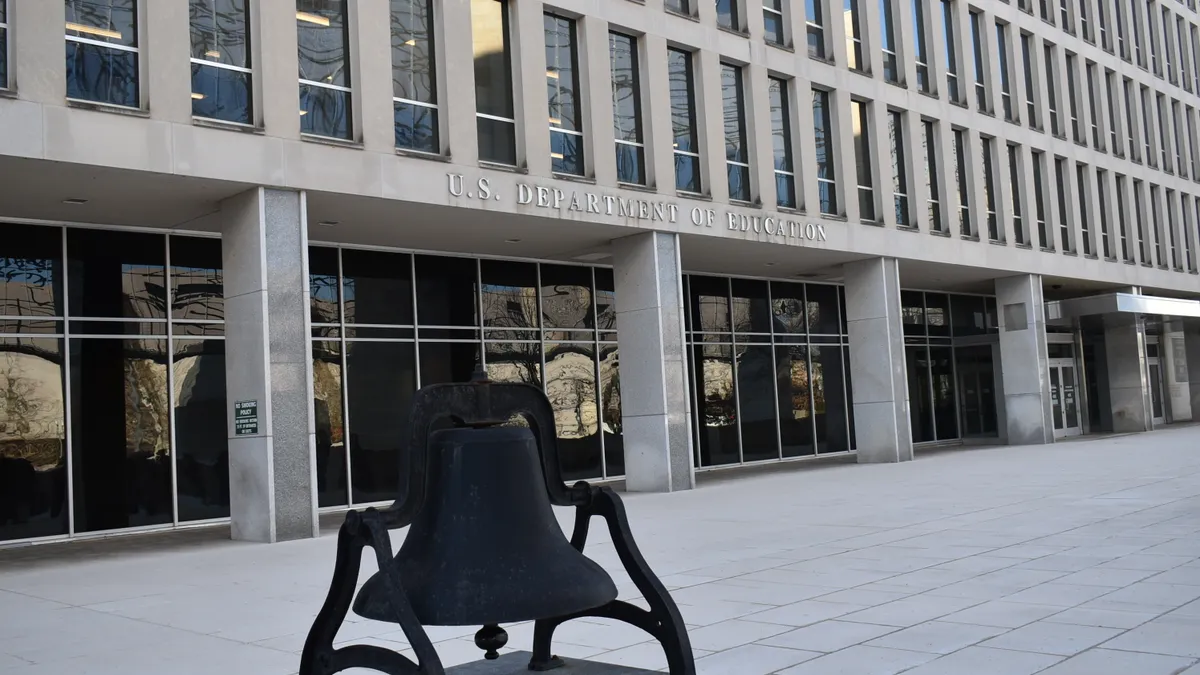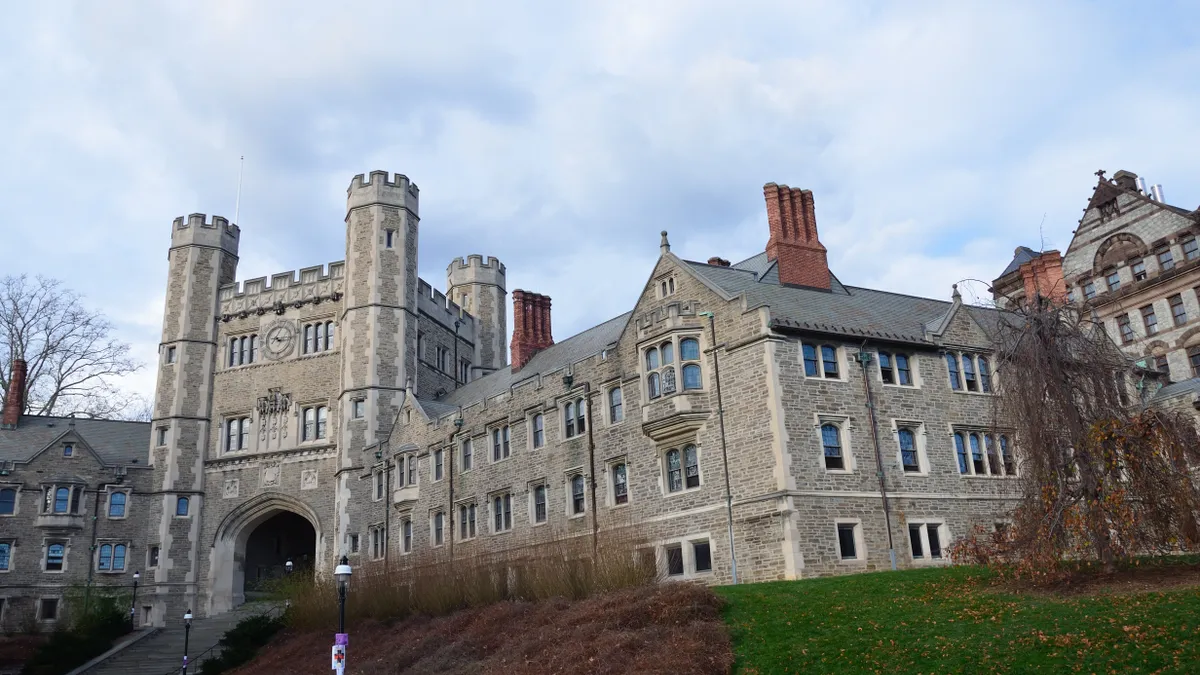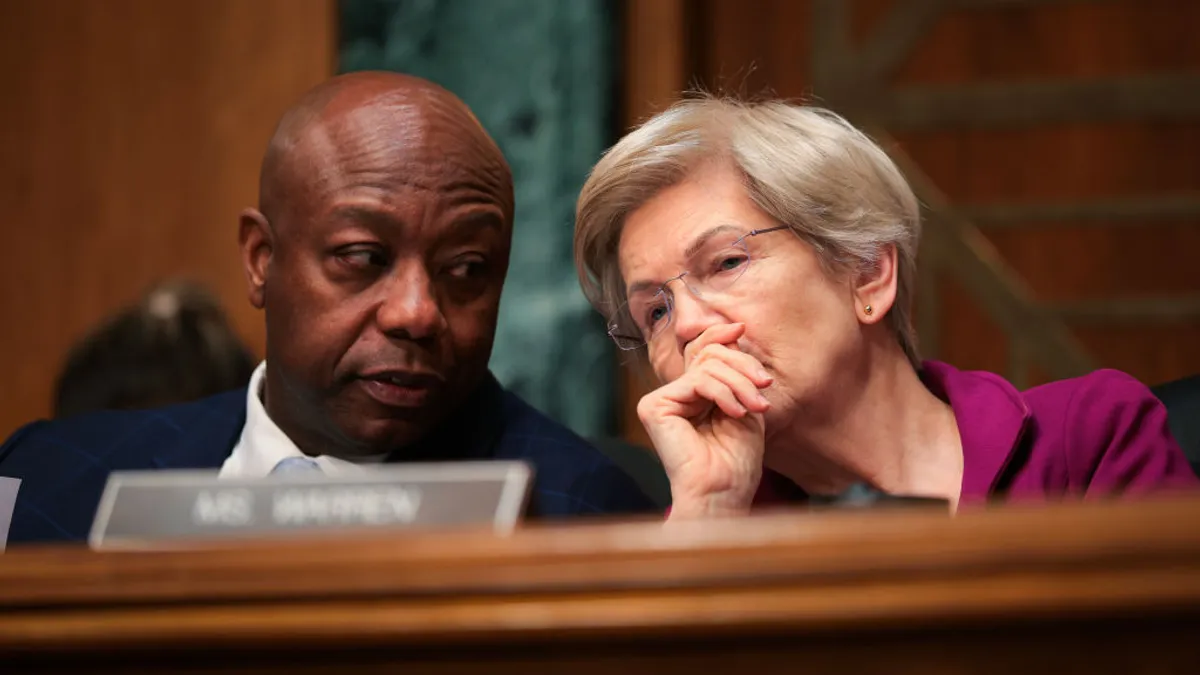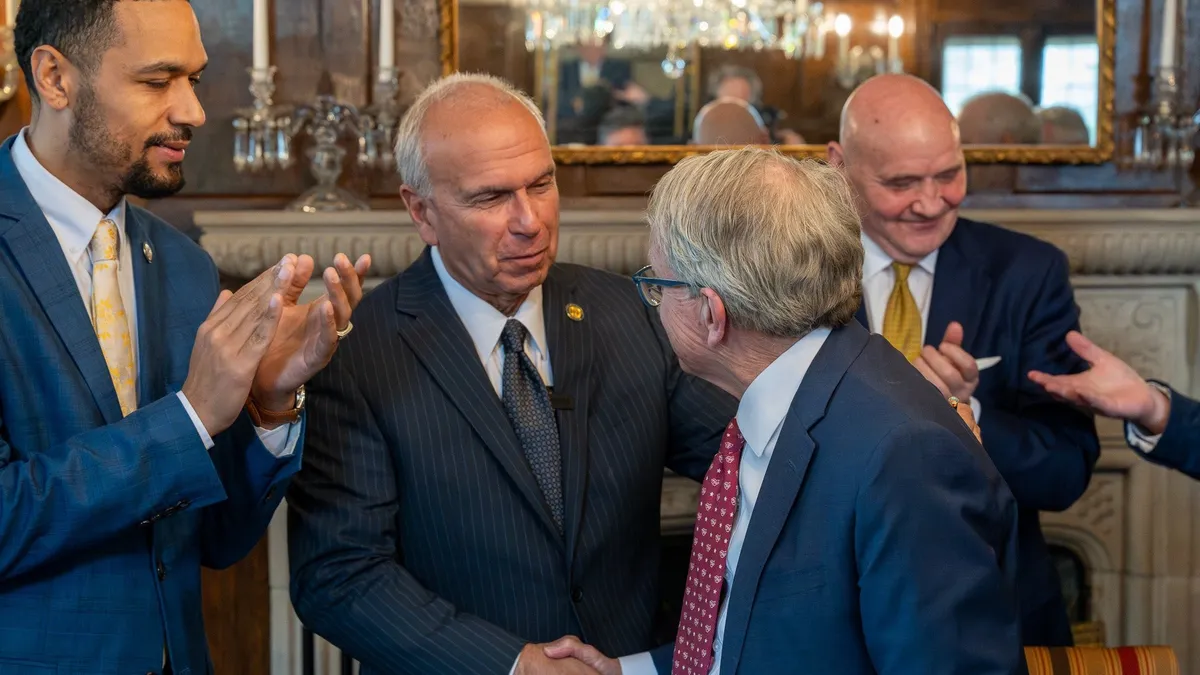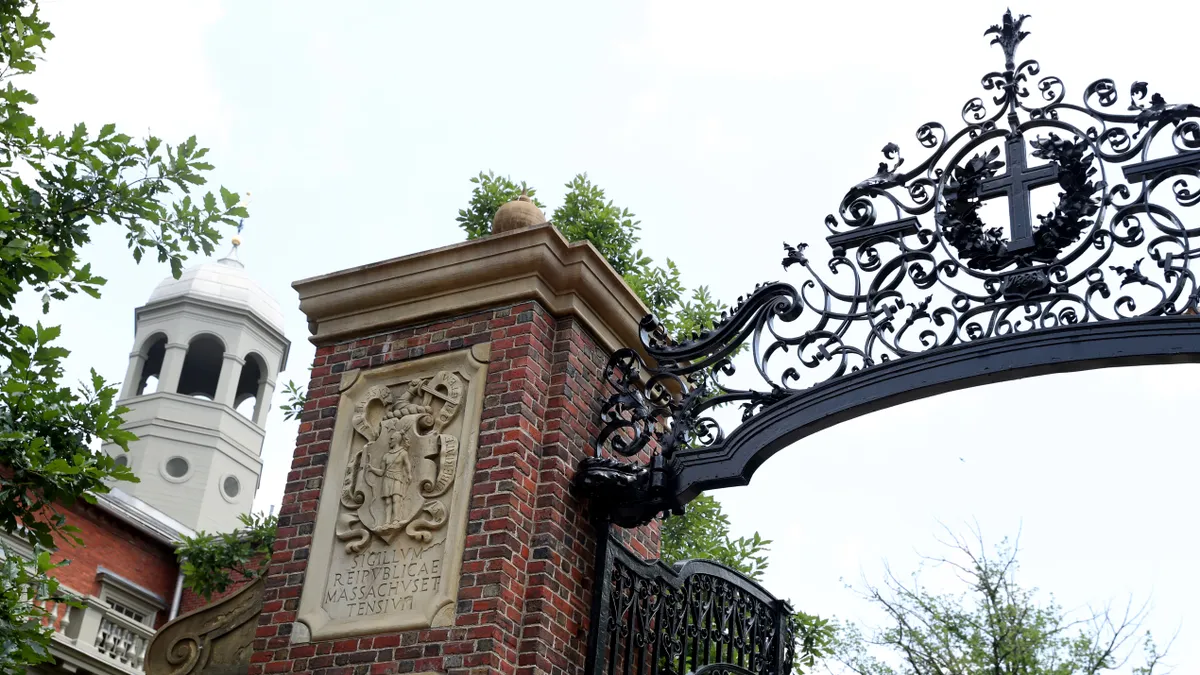The abrupt closure last year of Mount Ida College, in Massachusetts, rocked the higher education community in a state known for its large and influential sector of private colleges.
Its impact was so significant that it moved the state's legislature to pass a law, which Gov. Charlie Baker signed earlier this month, designed to monitor colleges' financial health and, hopefully, prevent similar closings — the ones largely unforeseen to students.
Mount Ida's 1,500 or so students had been given little warning of the college's collapse. Though most of them were offered automatic admission to the University of Massachusetts at Dartmouth, the scenario was far from ideal considering the 60-or-so-mile distance between the two schools.
Many students had picked Mount Ida, based in a leafy suburb of Boston, for its proximity to their hometowns. The college also offered niche programs — funeral services and commercial photography among them — for which it was difficult to find other institutions to teach-out.
The Association of Independent Colleges and Universities in Massachusetts (AICUM) has opposed regulatory measures that force colleges to develop certain contingency plans.
"[I]t is important to state that the abrupt manner of Mt. Ida's closure was wrong, as it needlessly disrupted the lives of Mt. Ida's students and their families, as well as its faculty and staff, and caught state officials by surprise," AICUM President Richard Doherty wrote in a letter to the state's Department of Higher Education in August, and that Education Dive obtained in a public records request. Doherty did not respond to request for comment.
The letter goes on to caution that Mount Ida's actions "should not define the entire independent higher education community, nor should the regrettable outcomes of those actions subject institutions to overly burdensome requirements."
AICUM has previously argued that because shutdowns are uncommon, state oversight is unnecessary.
But they increasingly are not. A rash of factors, including a downturn in high school graduates, affecting New England, in particular, has led analysts to forecast the closure of more small colleges in the region. And Massachusetts, among other states, has generally lacked mechanisms to hold leaders of those institutions accountable. Marian Court College, a tiny Roman Catholic college on the Massachusetts coast, shuttered with little notice in 2015, and state officials never discovered what became of its assets, endowment and liabilities.
A nationwide problem
Similar enrollment declines and skyrocketing tuition discounts have caused the demise of small, liberal arts institutions nationwide. Moody's expects the number of college closures annually to reach up to 15 as of this year and next.
Policies in private-college-rich Massachusetts will likely serve as a guide for other jurisdictions struggling with the same challenges.
"This is an important model for other states," said Clare McCann, deputy director for federal higher ed policy at New America, in an interview with Education Dive. "How do they do a better job to prevent this from happening again in the future? They're watching very closely how this gets implemented."
Creating guidelines for seamlessly closing a college and ensuring students find alternatives to programs has proved difficult. College administrators across the country have been adamant that sharing details of their sometimes woeful finances sounds the death knell for their institutions, Robert Kelchen, a professor of higher education at Seton Hall University, told Education Dive.
They contend that announcing a college is at risk of closing scares away potential applicants and stops alumni from donating. And colleges have recovered before. Notably, a large-scale fundraising effort saved the women's college Sweet Briar in 2015.
"Identifying the risks could put some colleges over the edge," Kelchen said of floundering smaller private institutions.
This sort of fear was highlighted recently when higher education trade publication Inside Higher Ed, in tandem with college advising company Edmit, attempted to share calculations of how long 946 private institutions had until their projected net expenses would exceed their projected net assets, which would increase the likelihood they would close.
At least one college threatened to sue if Inside Higher Ed publicized the projections. Another institution, through a lawyer, wrote to the publication saying it would be "reckless" to publish the figures, which were based on federal data.
Push for transparency
It is a near-ubiquitous argument, however, that more transparency on these issues is needed. An investigation by the Massachusetts attorney general found Mount Ida officials knew the college was at imminent risk of closing and did not develop a suitable backup plan.
The end result was upended students and an arrangement that the campus would be folded into UMass Amherst, which took on about $70 million in debt to buy it. The deal was criticized for potentially disadvantaging its fellow institution in the University of Massachusetts system, UMass Boston. But Amherst, which has long wanted to establish a physical presence in the area, went ahead with it.
The law approved this month authorizes the state's Board of Higher Education to create a process by which it screens private colleges annually and determines whether they are on shaky financial ground. The board is due to vote next month on regulations that would establish these procedures.
The final version of the regulations is not yet public, but a draft version outlines how colleges would be asked to submit plans describing how they would save the operation if it was in financial trouble. The department would not publicly disclose the details of certain colleges' finances or whether they were in distress, and that information would be exempted from the state's public records law.
Colleges that fail to comply with the rules could see their state aid cut off and their ability to grant degrees revoked, according to the draft regulations.
"We believe we're in the vanguard of states addressing the issue of college closures," said Carlos Santiago, Massachusetts commissioner of higher education and chair of the State Higher Education Executive Officers' executive committee, in a statement to Education Dive. "We've seen 18 colleges close or merge in our state over the last six years, and we expect the trend to continue. So we think it's vital that we take steps to protect students from the devastating impact of these closures."



